QuestionI read the question about black schnauzers changing hair color. What about black poodles? Is it normal for them to change colors? I have a black poodle I adopted about a year ago. They told me she was only 1 year old (she about to turn 2), and her teeth are perfectly white so she is pretty young. Her hair around the mouth is turning black and she is also getting a lot of gray hair. My husband said she is getting old but, she is only 2. I would like to know if this is normal. Do black poodles shed too?
AnswerHi Alma,
Dogs (Poodles included) can have a slight color change as they grow from puppy to adult dog, and of course mature dogs will turn a grey or white. But changing from say an apricot color to black isn't a likely scenario.
Dogs are like humans, some of us get gray hair when we are still fairly young. The color of hair is usually lighter down near the root, where the hair shaft is usually much thinner, too.... and where the hair is cut. If you clip your dog, the darker color is cut off, leaving a lighter shade (and making the coat softer). When your dog turns grey is just part of her genetics.
At two, your dog is very much in the prime of her life. She's a young adult, and she is by no means old. Depending on whether your dog is a standard poodle or toy size, the average life expectancy is 12 years for the standard, and 14 for the toy.
There is no such thing as a dog which doesn't shed. When Poodles (and some terrier breeds) shed, their hair remains in their coat, and while that may be great for the appearance of your living space, it's the reason that regular grooming is required. The shed hairs shed hair needs to be removed before it becomes tangled and matted. It doesn't matter what color your Poodle is, this holds true for all of them.
Keep your dog's teeth beautiful and white. If you don't brush her teeth already, you should start now.
Periodontal disease affects about 80 percent of dogs over two years old and 85 percent of dogs over five years old. This disease is slow to develop as opposed to happening over a few days. It causes ulceration and recession of the gums, loss of supporting tissue and ligaments and erosion of the bone, that all hold the teeth. It is called periodontitis and it is not reversible. The precursor of periodontitis is gingivitis; a painful inflammation of the gums caused by tartar buildup; it is reversible with brushing! A dog that gets it's teeth brushed will live longer.
The more you brush the better. Always aim for daily dental care for your dog, just as you aim for daily dental care for yourself. The hardest thing about home dental care for dogs is just getting started. Once you have done it for a while, it just becomes part of your daily routine. If you cannot brush daily, brushing every other day will remove the plaque before it has time to mineralize. This will still have a positive effect on your dog's oral health.
Only use a toothpaste especially made for dogs! Dog's can't rinse. You can read more about how to brush your dog's teeth here:
http://www.peteducation.com/article.cfm?cls=2&cat=1653&articleid=384
Best of luck,
Patti

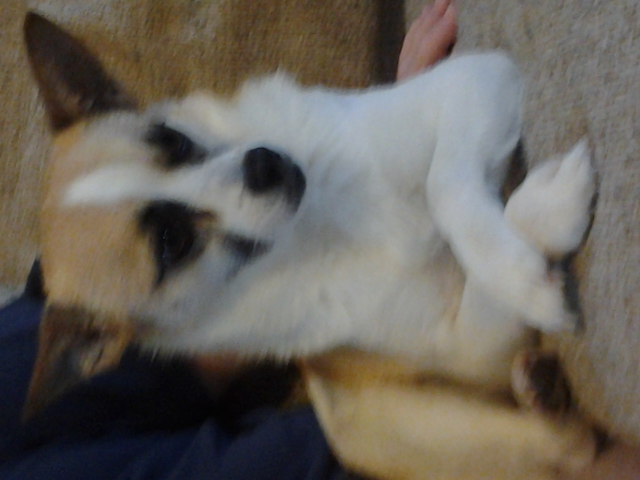 What type of do is my dog Abby
Question
Abby Abby
what type of dog is my
What type of do is my dog Abby
Question
Abby Abby
what type of dog is my
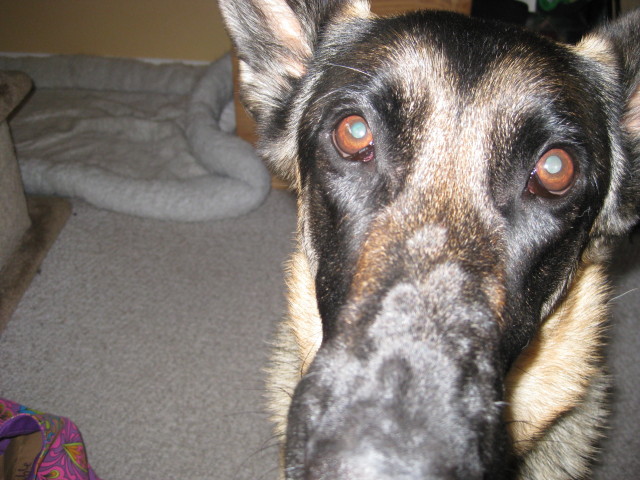 bumps on dogs nose
Question
bumps on nose
My dog has bumps on her nose..Sh
bumps on dogs nose
Question
bumps on nose
My dog has bumps on her nose..Sh
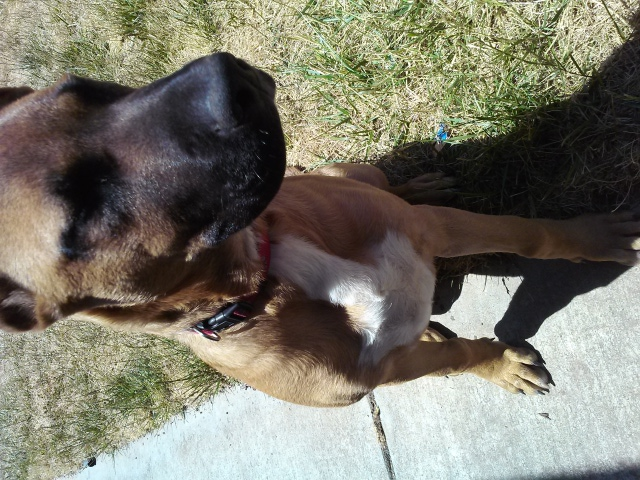 dog breed unknown
Question
dog breed unknown dog breed unknown &nbs
dog breed unknown
Question
dog breed unknown dog breed unknown &nbs
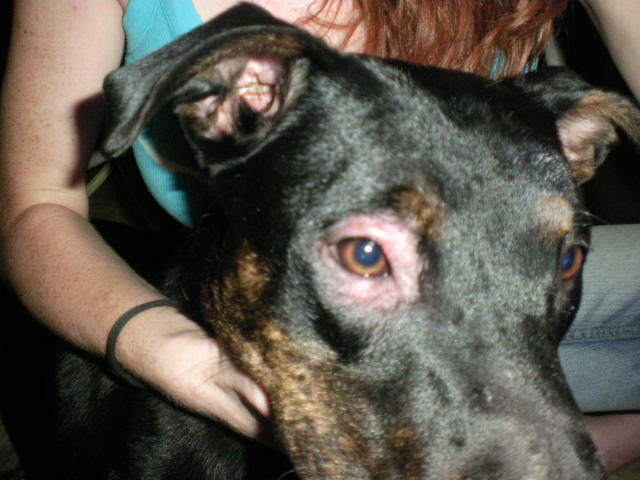 7 month old blue healer mix (Cloe)
Question
cloes right eye
Cloe was having really bad eye
7 month old blue healer mix (Cloe)
Question
cloes right eye
Cloe was having really bad eye
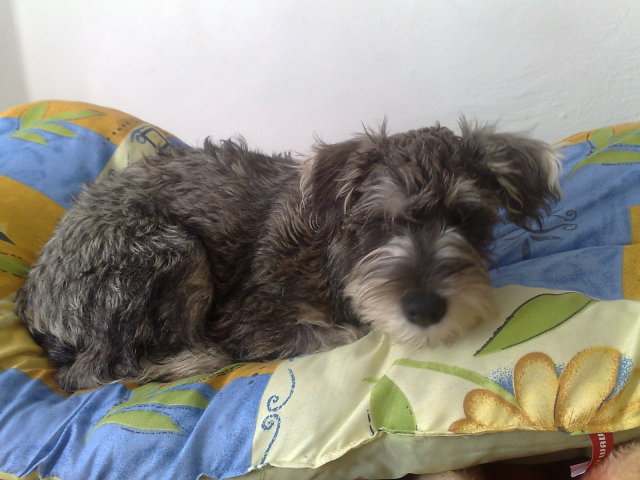 Anxiety separation????
Question
donovan
HI then, I got my schnauzer when it w
Anxiety separation????
Question
donovan
HI then, I got my schnauzer when it w